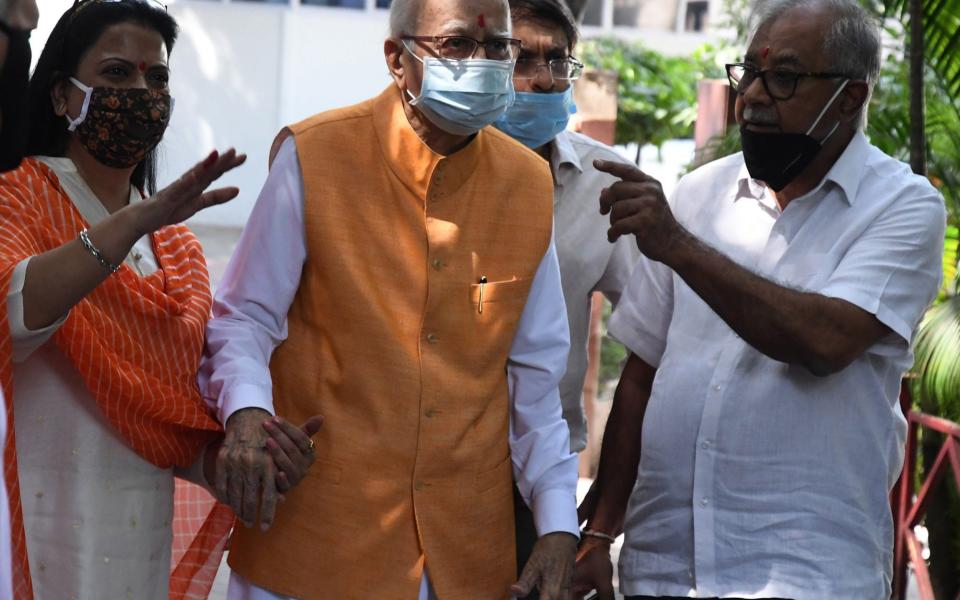32, including four BJP leaders, acquitted of demolishing Babri mosque in India

An Indian court has acquitted 32 people accused of demolishing a 16th Century mosque and sparking deadly inter-religious riots, in a decision that will define the Hindu nationalist tenure of Narendra Modi, the Indian Prime Minister.
There was not enough evidence to prove the accused, who included four senior leaders of the ruling Bharatiya Janata Party (BJP), conspired to raise the Babri Masjid in the city of Ayodhya in 1992, the trial court said.
The BJP leaders claim the mosque was destroyed spontaneously, despite tens of thousands of Hindus armed with axes and hammers gathering nearby.
The violence that followed the raising of the mosque resulted in 2,000 people, mainly Muslims, being killed.
Hindus claim their god Ram was born at the disputed site and the Babri Masjid was itself constructed on top of a historic temple.
India’s judicial system is notoriously inactive and has also repeatedly ruled in favour of the BJP and its allies.

The long-awaited verdict follows another controversial decision last November which saw permission granted to build a Hindu temple on the remains of the raised mosque.
In August, Mr Modi laid the first foundation stone of the new Ayodhya Ram temple and claimed it was the “dawn of a new era” for Indians.
He had made the reconstruction of the temple a key promise in his re-election last year and its fulfilment delighted many of India’s majority Hindu population, who form his support base.
India’s 200 million strong Muslim minority hoped that while construction of the Ayodhya Ram temple had begun, those who destroyed their iconic mosque would finally face justice.
Instead, the court’s ruling is the latest in a succession of controversial Hindu nationalist decisions during Mr Modi’s second tenure.
Mr Modi has already introduced a new citizenship law which excludes Muslims and has scrapped the long-standing autonomy enjoyed by India’s then only Muslim-majority state of Jammu and Kashmir.
In February, encouraged by a politician from the BJP, Hindu mobs targeted Muslim homes and businesses in India’s capital New Delhi, killing at least 50 people. Not one Hindu instigator of the violence has been brought to justice.

 Yahoo News
Yahoo News 
